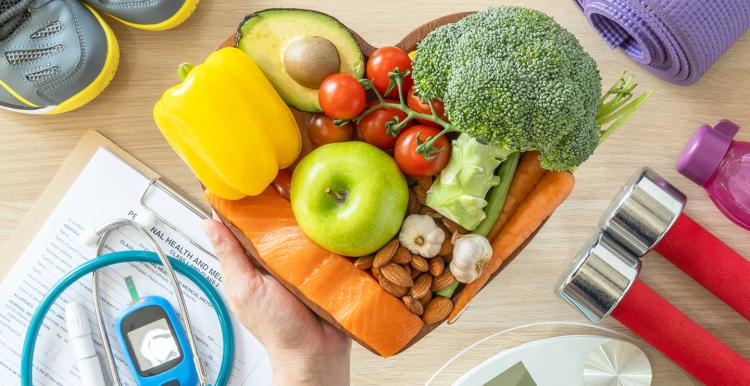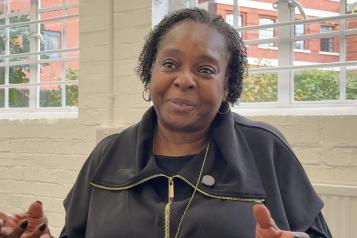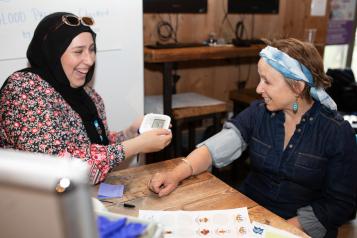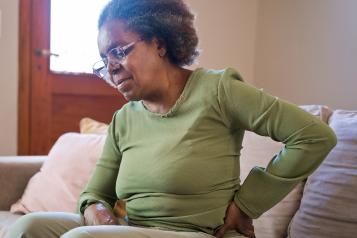Questions and answers on diabetes

These training sessions were requested by our partners and the residents they support. The questions the participants put to the experts during the workshops are reproduced here. The content has been checked for accuracy by those same experts before publication.
How do I make sure I do not get diabetes, as I am high-risk?
You can reduce your risk of Type 2 Diabetes through lifestyle changes. Maintain a healthy weight, eat a healthy, balanced diet, be physically active, don’t smoke, and avoid drinking alcohol.
In some cases, if you’re at risk of Type 2 Diabetes, losing any excess weight, being physically active and eating healthily, can make it easier for your body to manage your blood sugar levels and help prevent insulin resistance, which can lead to Type 2 Diabetes.
I already have Type 2 Diabetes. Can stress trigger it, and what other side effects do I need to monitor now?
Stress itself does not cause diabetes, but feeling stressed over a long time can take its toll on your health. Sometimes people manage stress with unhealthy behaviours, for example smoking, drinking alcohol or eating ‘junk food’ that is high in salt, as well as struggling to find time to exercise.
If you have diabetes, it’s important to monitor your blood sugar levels. Your doctor will create a personalised treatment plan based on your type of diabetes, symptoms, blood test results, and overall health. Many people with diabetes need a blood test just once a year, but others may need it done more frequently if their diabetes has been harder to control.
Out of the tests for diabetes you have shared, which is the best for identifying the onset of diabetes?
The HbA1c test is the most reliable for identifying the onset of diabetes, as it shows your average blood sugar over the past 2-3 months. This means it is not directly affected by the things you may have eaten or drunk that day.
What should I be doing exactly to keep both my blood sugar and blood pressure low?
If you already have high blood pressure or diabetes, the most important thing you can do is to follow the advice from your doctor. If you want to reduce your risk of high blood pressure or diabetes, you can take the following steps (these also work great alongside your doctor’s advice):
- Follow a balanced diet, with at least 5 portions of fruit and veg per day
- Take part in regular physical activity - guidance recommends 150 minutes a week of an activity that makes your heart beat a little bit faster or makes you feel warm
- Reduce salt and sugar intake – aim to eat less than 6g of salt per day, which is around 1 teaspoon. Cutting free sugars (sugars added to our food) out of your diet can help keep blood sugar levels from getting too high
- Take care of your mental health - manage stress and make sure to get adequate sleep or rest. Take time out to spend time in nature or with family.
What amount of sugar and salt can we have a day?
For a healthy balanced diet, have no more than 6g salt per day (for adults). This is around 1 teaspoon of salt. It’s much less for children. Remember that salt is often hidden in foods like bread, ready-made sauces, and spice mixes.
Cutting out free sugars (sugars added to food) can help you manage your blood glucose levels and manage your weight. Like salt, sugar is often added to foods like breads and juices.
Is diabetes hereditary?
You are more at risk of diabetes if you have a close relative with diabetes. There are other risk factors that increase your risk of diabetes, including:
- Being over the age of 40
- Having overweight or having obesity
- Having high blood pressure
- Having a history of diabetes during pregnancy (gestational diabetes)
- Experiencing deprivation
- Having a South Asian, African-Caribbean or Black African background
Can diabetes be cured?
If Type 2 Diabetes is detected at an early stage and a strict healthy diet and lifestyle are followed, then you can go into remission. This means that your blood sugar levels aren’t in the range for diabetes anymore, usually without needing any diabetes medication.
This shouldn’t be seen as a ‘cure’ or a ‘reversal’ because you need to maintain it and continue to receive regular diabetes reviews.
For more information about diabetes, visit www.diabetes.org.uk.


